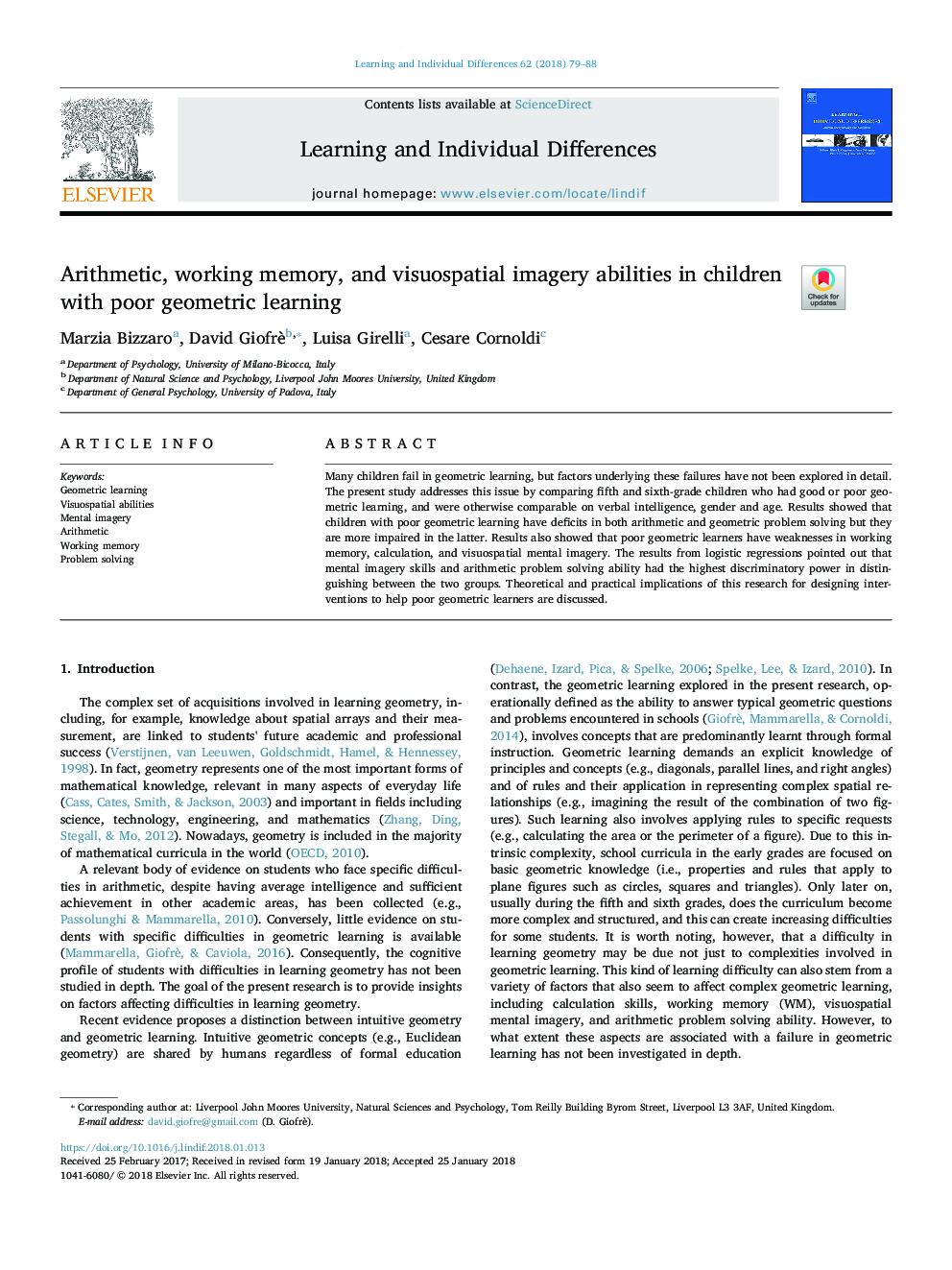| Article ID | Journal | Published Year | Pages | File Type |
|---|---|---|---|---|
| 6844453 | Learning and Individual Differences | 2018 | 10 Pages |
Abstract
Many children fail in geometric learning, but factors underlying these failures have not been explored in detail. The present study addresses this issue by comparing fifth and sixth-grade children who had good or poor geometric learning, and were otherwise comparable on verbal intelligence, gender and age. Results showed that children with poor geometric learning have deficits in both arithmetic and geometric problem solving but they are more impaired in the latter. Results also showed that poor geometric learners have weaknesses in working memory, calculation, and visuospatial mental imagery. The results from logistic regressions pointed out that mental imagery skills and arithmetic problem solving ability had the highest discriminatory power in distinguishing between the two groups. Theoretical and practical implications of this research for designing interventions to help poor geometric learners are discussed.
Keywords
Related Topics
Social Sciences and Humanities
Psychology
Developmental and Educational Psychology
Authors
Marzia Bizzaro, David Giofrè, Luisa Girelli, Cesare Cornoldi,
